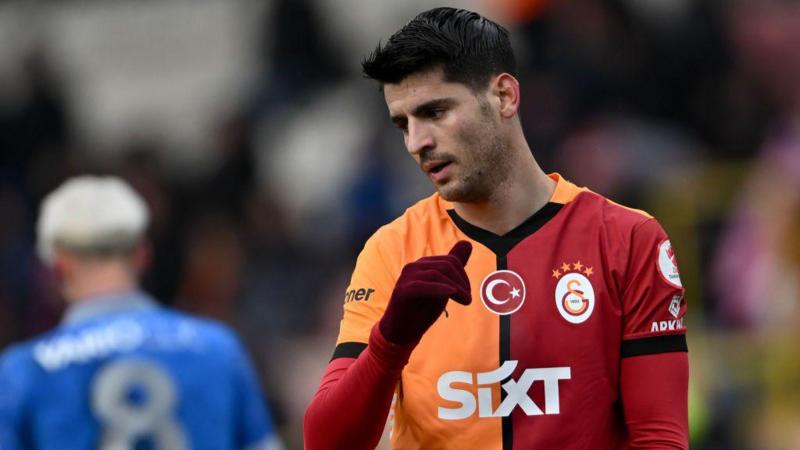Morata Blasts Galatasaray After Abrupt Loan Termination



In a move that has drawn considerable attention from the football world, Spanish striker Alvaro Morata recently disclosed some startling details behind his departure from Turkish giants Galatasaray. The 30-year-old forward revealed that he had to forfeit a portion of his salary just to facilitate his exit from the club, a decision he felt compelled to make when the club did not meet specific commitments it had promised him.
Alvaro Morata’s journey with Galatasaray was a brief chapter in his otherwise illustrious career, which includes spells at top clubs like Real Madrid, Juventus, and Chelsea. His time in Turkey, however, did not align with the expectations set when he initially signed the contract. The former Atletico Madrid player explained that certain conditions, likely related to contractual obligations and club support, were not upheld, pushing him to make a tough decision—sacrifice his wages to move on.
This isn’t the first time we've seen players caught in similar predicaments, where contract disputes lead to difficult departures. However, Morata's case highlights a larger discussion about the dynamics between football clubs and players, particularly in regards to respecting contracts.
Galatasaray, a club with a rich history and a passionate fan base, traditionally attracts high-caliber talent. Yet, managing such talents and maintaining club stability can be challenging amidst financial pressures and expectations. For Morata, it seems the vision promised by Galatasaray at the signing table dimmed sooner than anticipated.
The circumstances surrounding Morata's exit also open up conversations about the protections and rights of players. In an industry where clubs wield significant power, instances like this could spur calls for better safeguards for players' careers and earnings. The financial sacrifices players have to sometimes endure spotlight the unpredictable nature of football careers, where not everything is controlled by on-field performances.
Moreover, Morata’s departure from Galatasaray and subsequent wage sacrifice ultimately poses questions about the transparency and execution of contractual agreements in football. It serves as a cautionary tale for players when making club decisions, emphasizing the importance of a clear and mutual understanding of contractual obligations from the outset.
On the flip side, clubs might face reputational impacts when conflicts of this nature come to light. For Galatasaray, managing this situation delicately is crucial to ensure they can attract other high-profile players in the future without the shadow of past disputes looming over new signings.
As Morata resumes his career beyond Galatasaray, possibly seeking new adventures elsewhere, this episode will be a marked point in his career review. Known for his agility, technical skills, and knack for being in the right place at the right time, Morata remains a valuable player on the market. His experience across Europe’s top leagues has equipped him with a robust footballing acumen, arguably making him a strong candidate for teams looking to bolster their attacking options.
In reflection, while Morata's departure from Galatasaray carries a tinge of controversy and unmet expectations, it also reinforces the transient nature of professional sports. Players often have to navigate through the unpredictable waters of club politics and financial agreements, all while keeping their performance on the pitch unaffected.
Looking ahead, Morata’s revelation might catalyze a closer scrutiny of club-player agreements and fair play in contractual commitments. As the football community watches on, the hope will linger for a fairer, more transparent world wherein clubs and players alike can thrive without the discord of unfulfilled promises hindering their progress and passion for the game.